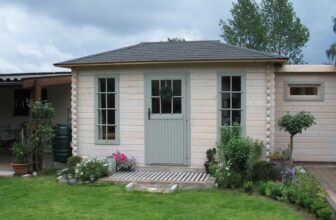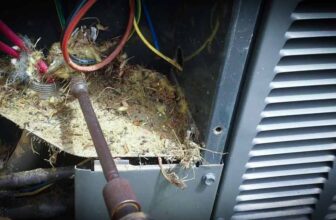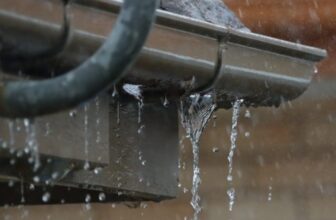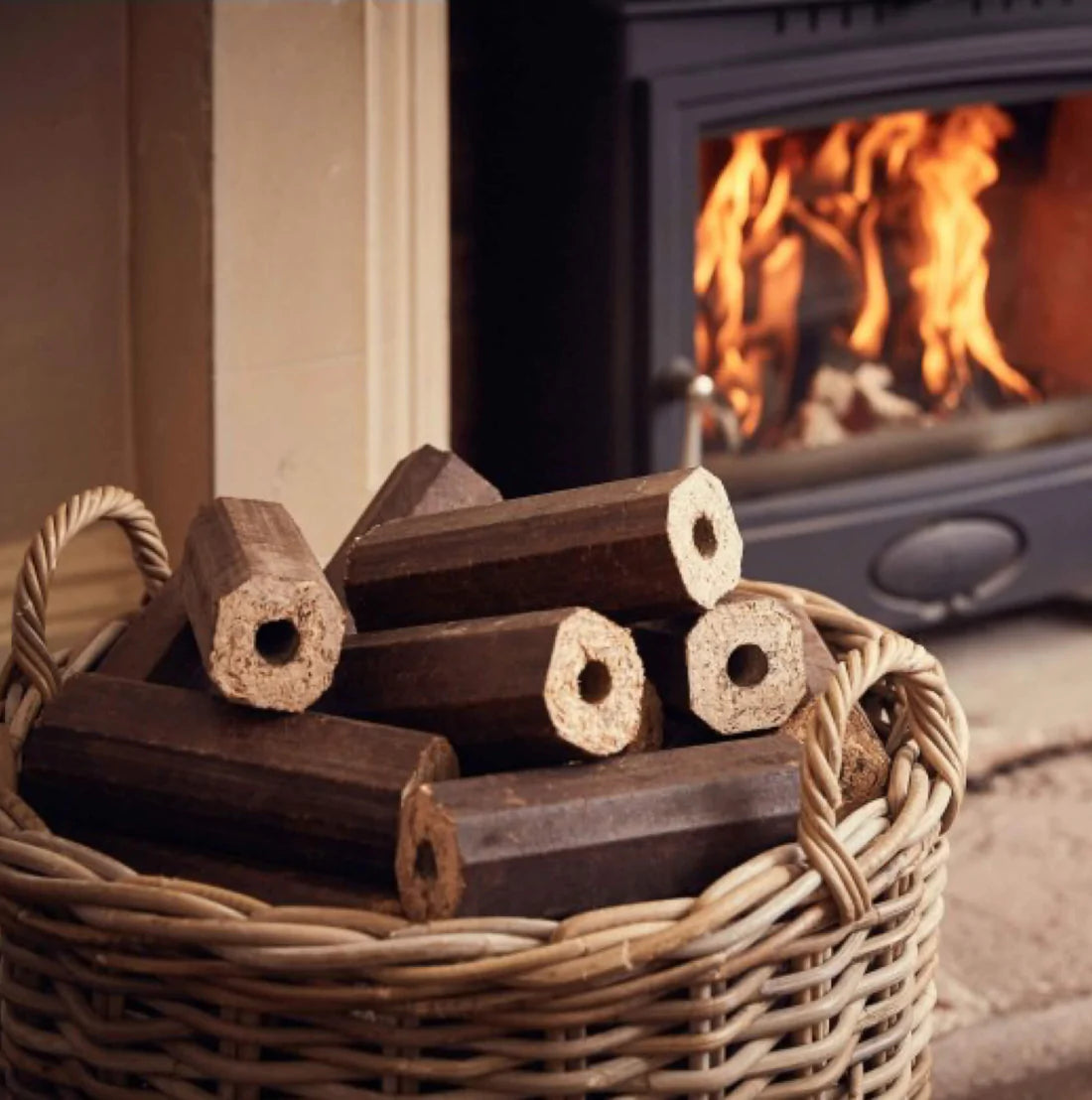
When it comes to heating our homes and enjoying the warmth and ambiance of cozy fires, there are several options available, with firewood and briquettes being two of the most popular choices. Both of these fuel sources have their own unique merits and characteristics, but when it comes to fuel efficiency, which one reigns supreme?
In this comprehensive article, we will delve deep into the details, comparing the fuel efficiency of firewood and briquettes, examining their advantages, disadvantages, and everything in between. By the end of this article, you will have a thorough understanding of the intricacies of these two options, empowering you to make an informed decision that best suits your heating needs. So, let’s dive in and explore the fascinating world of firewood and briquettes, unraveling the secrets behind their fuel efficiency.
Table of Contents
Firewood: Traditional and Natural
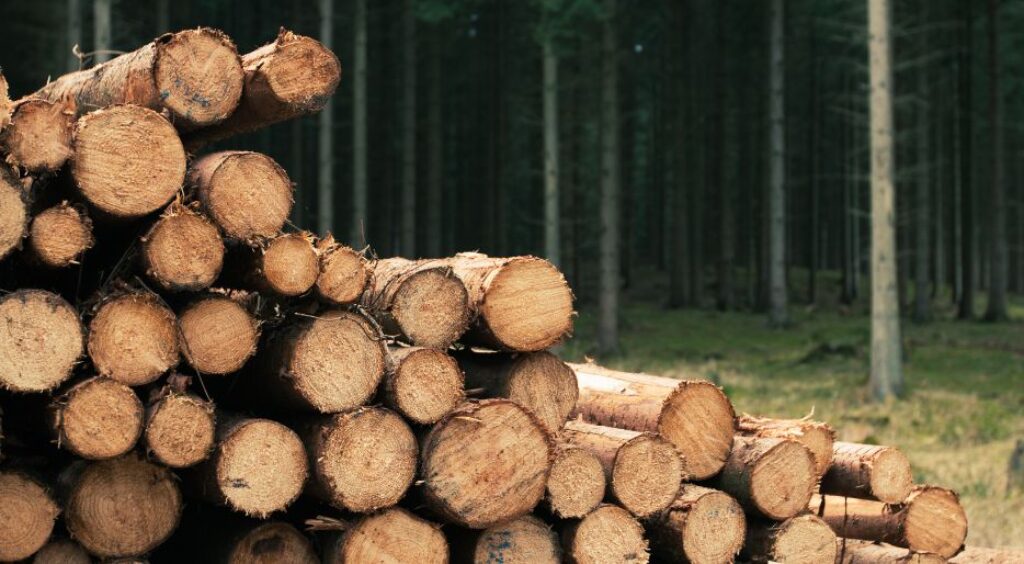
Source: panadero.com
Firewood has been used for centuries as a primary source of heat. It is typically sourced from trees, such as oak, maple, or birch, and is available in different sizes and shapes. Here are some key points to consider when it comes to firewood:
- Moisture Content: One crucial factor affecting the fuel efficiency of firewood is its moisture content. Green or freshly cut firewood contains a significant amount of water, which hinders its ability to burn efficiently. It is essential to season firewood properly, allowing it to dry for at least six months to achieve a moisture content of around 20%. Dry firewood burns more efficiently, producing more heat and less smoke.
- Heat Output: Firewood has a high heat output, which is ideal for quickly warming up a room or providing a cozy atmosphere. Hardwoods, such as oak and maple, tend to provide longer-lasting and more intense heat compared to softwoods like pine or spruce.
- Handling and Storage: Firewood requires proper handling and storage. It needs to be stacked and stored in a dry, well-ventilated area to prevent the growth of mold and fungus. Additionally, firewood takes up more space compared to briquettes, so you need ample storage capacity. click now to learn more about firewood and other valuable resources.
Briquettes: Consistency and Convenience
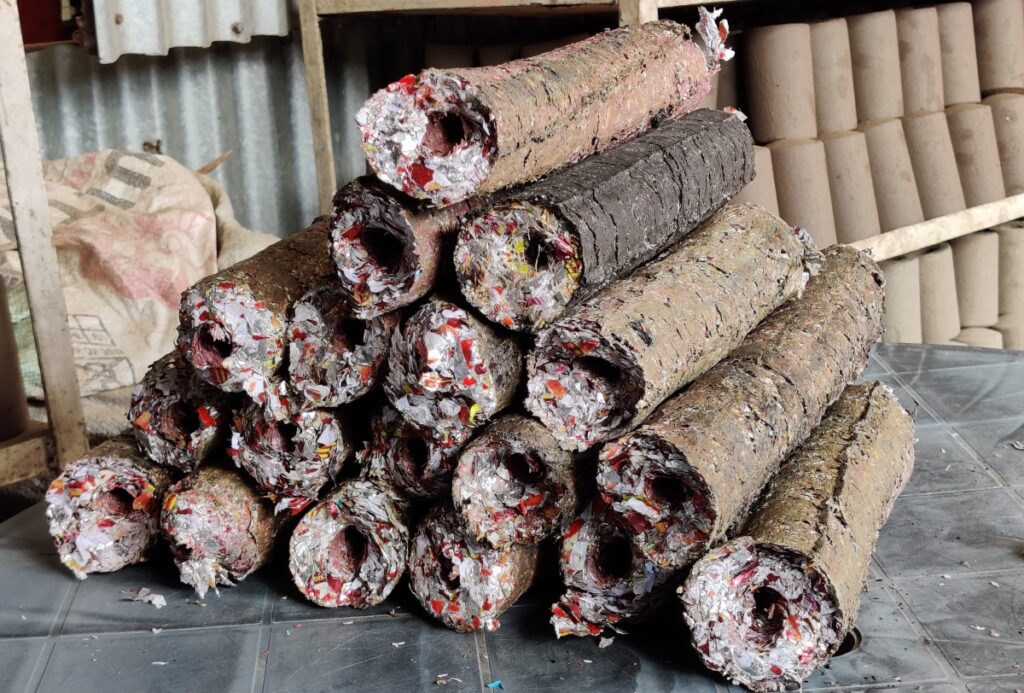
Source: english.onlinekhabar.com
Briquettes, a viable alternative to traditional firewood, are manufactured fuel blocks made from compressed organic matter, such as wood chips, sawdust, or agricultural residues. They offer a range of advantages over firewood, making them an increasingly popular choice for heating. Let’s explore the characteristics that make briquettes stand out:
- Uniformity and Density: Briquettes are produced under controlled conditions, ensuring a consistent size, shape, and density. This uniformity contributes to better fuel efficiency since each briquette burns in a predictable manner. The dense composition allows for a slower burn, resulting in longer-lasting heat. With briquettes, you can enjoy a steady and continuous heat output, minimizing the need for frequent refueling.
- Low Moisture Content: Unlike firewood, which can contain a significant amount of moisture, briquettes are typically manufactured with low moisture content. This low moisture level makes them easier to ignite, ensuring a faster and more efficient burn. With less moisture, briquettes produce minimal smoke and emissions, promoting a cleaner and healthier indoor environment. Furthermore, the absence of excessive moisture means that the energy released during combustion is directed towards generating heat rather than evaporating water content.
- Clean Burning: Briquettes are designed to burn cleanly, reducing the amount of ash and smoke generated during combustion. This is particularly beneficial for maintaining the cleanliness of your fireplace or stove, as well as minimizing the time and effort required for maintenance. Additionally, briquettes are often produced with additives that enhance their combustion properties, resulting in more complete burning and lower emissions of harmful substances.
- Environmental Benefits: Opting for briquettes can have positive environmental implications. Since they are manufactured from organic waste materials like wood chips and sawdust, briquettes contribute to waste reduction and utilize resources that would otherwise go to waste. By choosing briquettes made from sustainably sourced materials or those made from recycled biomass, you can further reduce your carbon footprint and promote environmental sustainability.
- Convenience and Storage: Briquettes offer exceptional convenience in terms of handling, storage, and transportation. Their compact size and uniform shape make them easy to handle and stack neatly. Compared to firewood, briquettes require less storage space, making them an excellent choice for those with limited storage capacity. Whether you have a shed, a garage, or a designated storage area, briquettes can be organized and stored efficiently, ensuring a readily available supply of fuel for your heating needs.
Choosing the Right Option
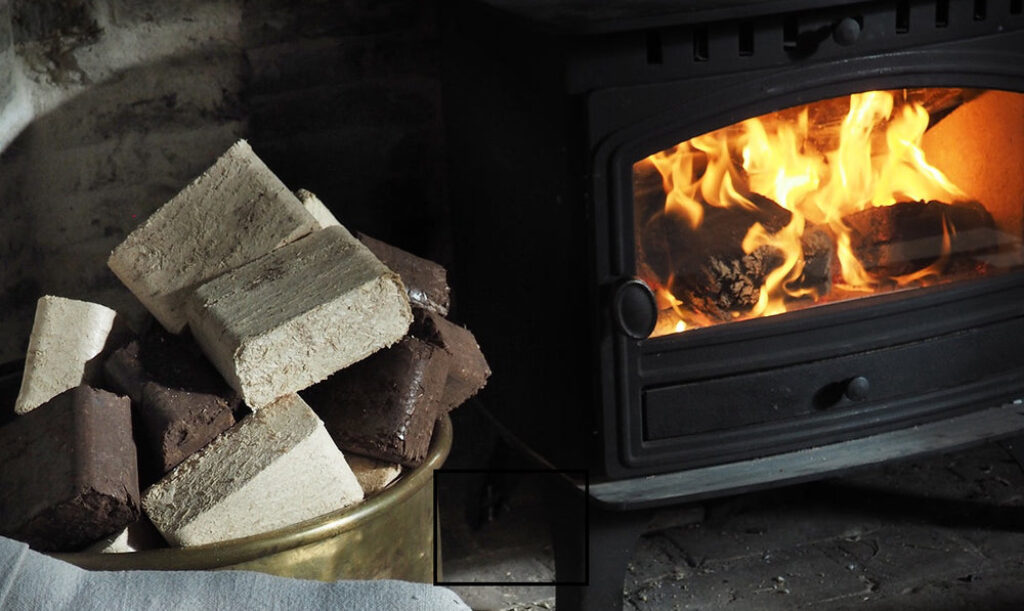
Source: lektowoodfuels.co.uk
When faced with the decision between firewood and briquettes, it is crucial to take several factors into account. Here are some additional points to consider when determining which option is best suited for your needs:
- Energy Efficiency: Apart from fuel efficiency, it is essential to evaluate the overall energy efficiency of your heating system. Consider factors such as insulation, the efficiency of your fireplace or stove, and the heat distribution capabilities. A well-insulated space and an efficient heating system can maximize the effectiveness of both firewood and briquettes.
- Combustion Time: Take into consideration the duration of burning for each fuel source. Firewood tends to burn for a shorter period, requiring more frequent refueling. On the other hand, briquettes generally have a longer burn time, allowing for a more sustained heat output. Assess your lifestyle and availability for refueling to determine which option aligns better with your needs.
- Ignition and Start-Up: Consider the ease of igniting and starting a fire with each fuel source. Firewood may require more effort and time to light, especially if it has a higher moisture content. Briquettes, with their lower moisture content and standardized shape, tend to ignite more easily. If convenience and quick start-up are important to you, briquettes might be the preferable choice.
- Ash Production and Maintenance: Evaluate the amount of ash generated by each fuel source and the maintenance required. Firewood typically produces more ash compared to briquettes. Cleaning out the ash from your fireplace or stove is an essential part of maintenance, and the frequency of this task may influence your decision.
- Local Regulations and Restrictions: Be aware of any local regulations or restrictions regarding the use of firewood or briquettes. Certain areas may have limitations on wood burning or specific requirements for emissions. Ensure that you are compliant with any local rules and regulations to avoid potential issues.
- Aesthetics and Atmosphere: Consider the visual appeal and ambiance created by each fuel source. Firewood evokes a traditional and rustic feel, with the crackling flames and aromatic scent adding to the overall experience. Briquettes, while lacking the natural aesthetics of firewood, can still provide a warm and inviting atmosphere.
Conclusion
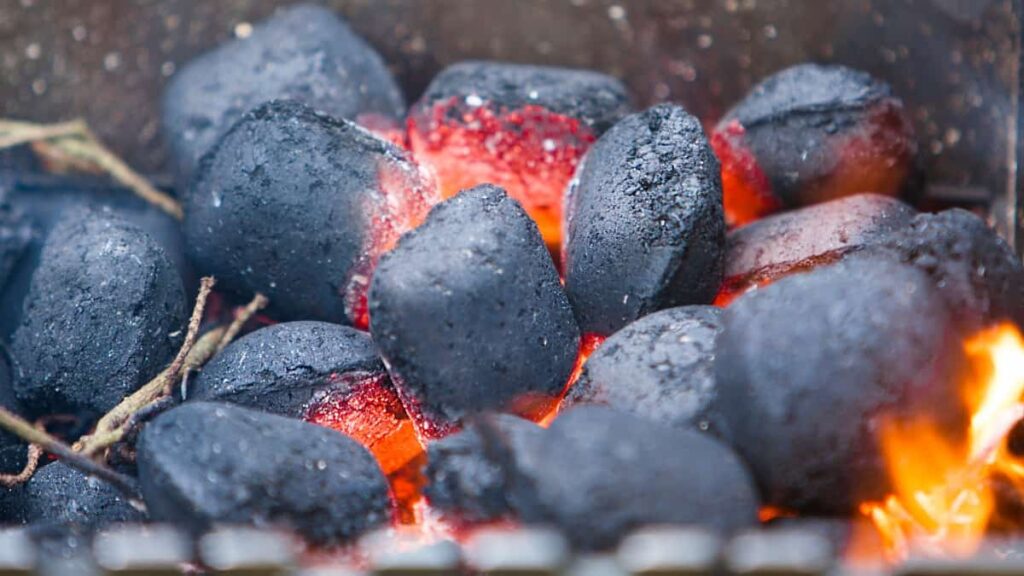
Source: foodfirefriends.com
In conclusion, the choice between firewood and briquettes for optimal fuel efficiency is influenced by several factors. Consider the availability, cost, heat requirements, environmental impact, energy efficiency, combustion time, ignition ease, maintenance, local regulations, and desired aesthetics. By carefully evaluating these aspects, you can make a decision that suits your needs and preferences. Remember to explore the availability and cost of firewood and briquettes in your area, assess your heat requirements accurately, and prioritize environmental sustainability when making your final choice. Whether you opt for the natural charm of firewood or the convenience and consistency of briquettes, both options offer their unique benefits and considerations. The ultimate goal is to keep your home warm, cozy, and efficient.




